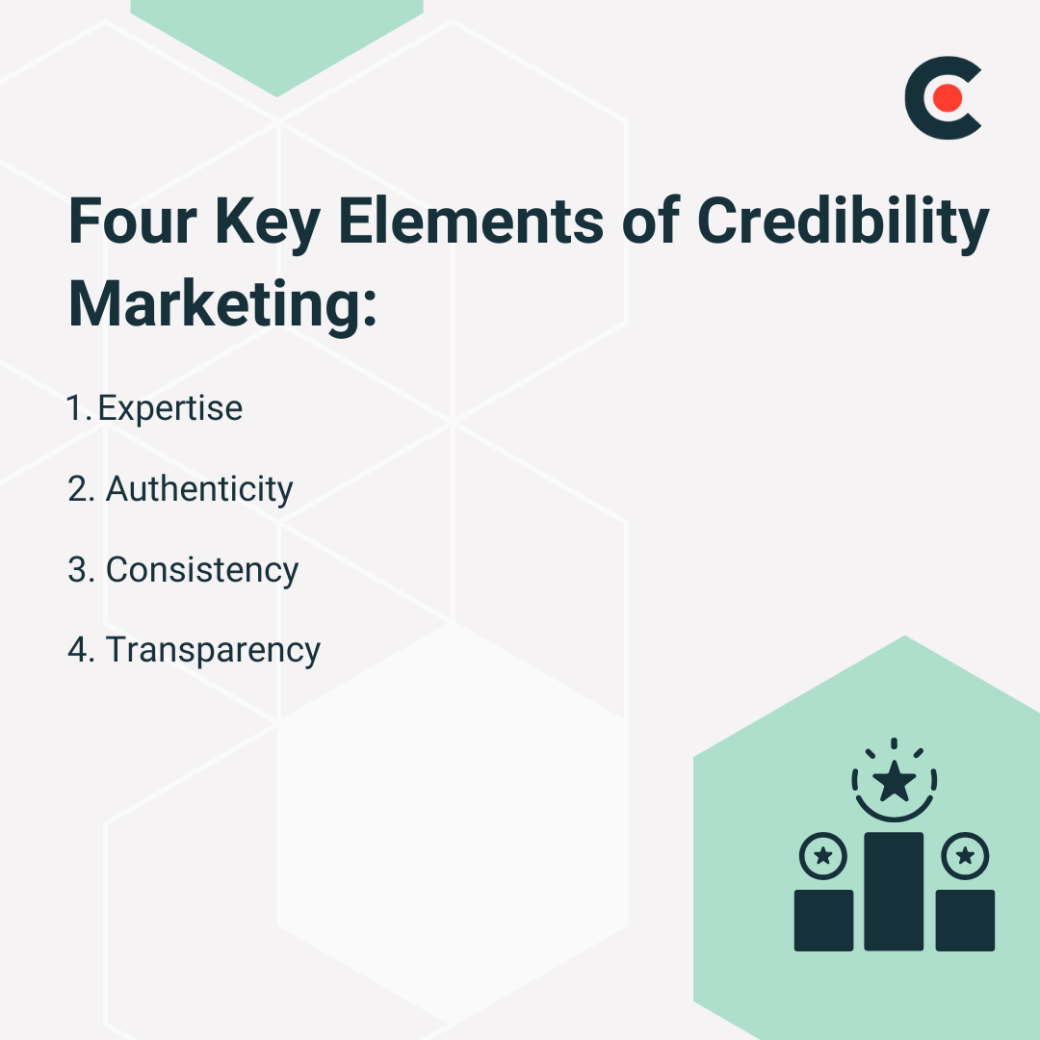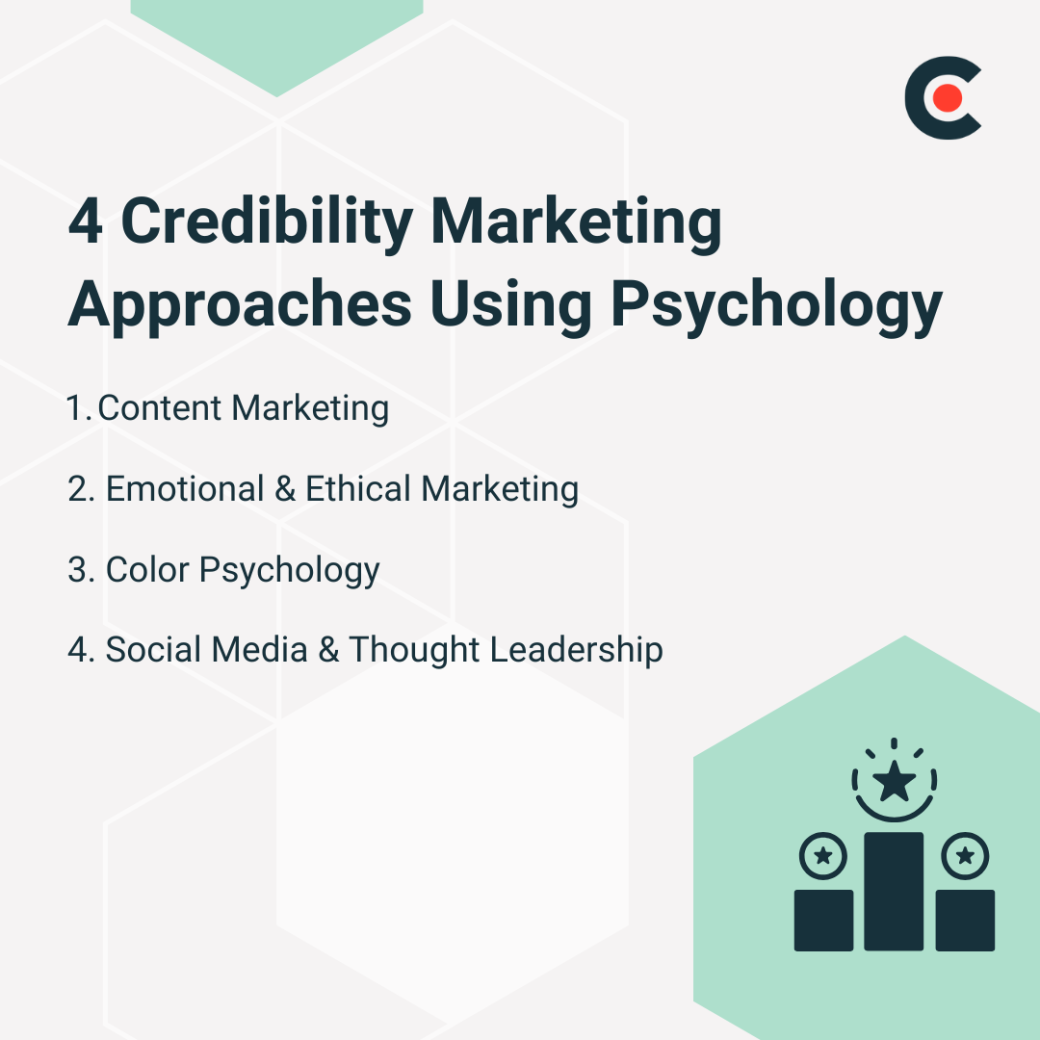

Updated April 9, 2025
Trust doesn’t come easily in B2B marketing.
These buyers don’t rush into decisions — they evaluate their options, weigh risks, and seek reassurance before committing. Unlike B2C customers, who often buy on impulse, B2B buyers deal with longer sales cycles and higher financial stakes. Every purchase affects the company’s success, so their decision-making process combines logic with emotional influences.
Looking for a Digital Marketing agency?
Compare our list of top Digital Marketing companies near you
The psychology of marketing studies how people perceive brands, process information, and make choices. Even in B2B settings, where data and rationality guide decisions, psychological triggers shape buying behavior. Familiarity, credibility, and emotional connection influence whether a prospect evokes confidence enough to move forward.
Let’s break down the psychology behind trust-building in B2B. We’ll also explore credibility marketing, cognitive biases, and psychological principles that sway purchasing decisions. Understanding these strategies helps position your brand as a dependable, trustworthy partner in the eyes of potential customers.
Marketing psychology studies how people respond to messaging, branding, and persuasion. It explains why certain strategies resonate while others fall flat. Examining and comprehending these psychological triggers can shape your customers’ perceptions, build trust, and subtly influence their decision-making.
B2B buyers rely on logic, but their emotions still play a role. Even the most data-informed decisions involve subconscious biases and mental shortcuts. Familiarity, authority, and perceived risk all affect whether a buyer trusts your brand enough to take action. Marketing psychology bridges this gap by applying behavioral science to business strategies.
Several established theories help explain how and why people make the choices they do.
Maslow’s Hierarchy of Needs highlights the importance of security and belonging — factors that influence trust in long-term business relationships. The Theory of Planned Behavior suggests that intent, social norms, and perceived control shape decisions.
These insights reveal why credibility, consistency, and peer validation matter in a B2B context when earning a buyer’s confidence.
Trust forms the foundation of every B2B relationship. When evaluating a product’s features, buyers — whether they realize it or not — also assess the company behind it. If a brand appears unreliable, inconsistent, or inauthentic, decision-makers will hesitate. In the absence of trust, even the best solutions struggle to get off the ground.

Credibility marketing strengthens trust by focusing on four key elements:
Reliability matters more in B2B than in most consumer markets. Buyers need assurance that a vendor will deliver long-term value rather than a one-time solution.
Every interaction — from viewing your marketing materials to having sales conversations — shapes their perception of your brand. Over time, companies that consistently prove their credibility build stronger client relationships and gain a competitive advantage.
Psychology plays a bigger role in B2B marketing than you may realize. Even when buyers rely on data and logic, their decisions aren’t purely rational. Cognitive biases and heuristics influence how they perceive brands, evaluate risks, and decide whom to trust.
Understanding these principles allows you to position your company more effectively and build lasting credibility.
People naturally gravitate toward what feels familiar. The mere exposure effect suggests that repeated interactions with a brand create a sense of trust, even if the buyer isn’t consciously aware of it. The more often decision-makers encounter a company’s messaging, the more credible that company appears.
In B2B, familiarity nurtures leads when long sales cycles require multiple interactions. Buyers are unlikely to engage with a company they’ve never heard of, but regular exposure through content, ads, or industry discussions makes them more receptive.
How to Apply:
The goal isn’t to overwhelm potential buyers but to establish a brand identity that makes them feel comfortable with your brand before they even reach out.
Uncertainty slows decision-making, especially when the stakes are high. In these situations, people look to others for reassurance. Social proof, such as testimonials, case studies, and industry recognition, reduces perceived risk by showing that others are satisfied with their choice.
B2B buyers don’t want to be the first to leap. They want proof that a product or service delivers results. Seeing evidence that peers, competitors, or respected industry leaders trust a company makes it easier to justify a decision.
How to Apply:
A single piece of social proof won’t drive a sale, but repeated validation from multiple sources builds a strong case for your trustworthiness.
People feel compelled to return favors. The principle of reciprocity explains why offering something valuable upfront encourages prospects to engage, respond, and eventually buy. In B2B, where trust must develop before a purchase, providing helpful content or services creates goodwill and strengthens relationships.
Reciprocity isn’t about manipulation. Rather, it’s about proving your company’s worth before asking for a commitment. When companies freely share insights or tools that genuinely help prospects, they position themselves as trustworthy experts rather than pushy salespeople.
How to Apply:
When brands give first, buyers feel naturally obligated to reciprocate, such as by scheduling a demo or making a purchase.
How you present choices affects how people perceive their benefits. The decoy effect occurs when an intentionally less attractive option makes another choice seem more appealing. This is a powerful principle in B2B, in which complex pricing structures and feature comparisons influence decisions.
For example, if a company offers two pricing plans — one basic and one premium — buyers might hesitate to choose the more expensive option. But if a third, slightly less valuable plan is introduced at a price close to the premium option, the premium choice suddenly looks like the best deal. This subtle shift nudges buyers toward the preferred decision.
How to Apply:
Buyers want to feel like they’re making a logical decision, but the way you frame their choices significantly influences their final selection.
Psychological principles don’t override logic in B2B sales, but they shape how buyers perceive trust, credibility, and value. Integrating these insights into your marketing strategy makes it easier for potential clients to engage, commit, and invest confidently in you.

Building trust in B2B marketing requires more than just making bold claims. Buyers need proof, consistency, and a sense of connection before committing to a partnership. These four credibility-fueled approaches apply psychological principles to strengthen trust and authority.
Decision-makers seek expertise. When your brand regularly shares valuable, well-researched content, you position yourself as a trusted industry leader. High-quality content informs and reassures buyers that your company understands their challenges.
How to Apply:
Content marketing works because it gives buyers a reason to trust your brand before a sales conversation even begins.
Even though B2B buyers rely on logic, emotional factors still influence their choices. You appear more trustworthy when your company’s principles match your audience’s priorities. Ethical marketing, such as messaging transparency and social responsibility, strengthens your credibility and your customers’ long-term loyalty.
How to Apply:
Companies that balance logic with ethical and emotional resonance create stronger, more loyal business relationships.
Certain colors evoke specific psychological responses, which shape how buyers interpret your brand’s credibility and reliability. B2B brands that strategically use color reinforce trust before the customer reads a single word.
How to Apply:
Using this well means maintaining consistent brand colors across websites, presentations, and marketing materials to strengthen recognition. Color psychology is a subtle but powerful way to shape brand perception with deliberate design choices.
4. Social Media & Thought Leadership
Trust increases through visibility and engagement. Using social media, your brand can establish credibility by sharing expertise, participating in industry discussions, and demonstrating thought leadership. Platforms like LinkedIn give companies and executives direct access to B2B decision-makers.
How to Apply:
A strong social presence can transform your brand from a faceless company into a trusted industry voice.

Credibility marketing requires consistent proof. Educational content positions your brand as an authority, ethical branding encourages trust, strategic color choices influence perception, and social engagement strengthens your industry presence.
When these approaches work together, they create a foundation of trust that makes B2B buyers more satisfied with their decisions.
Trust isn’t automatic in B2B marketing. You must build it through credibility and consistency; a deep understanding of human behavior certainly helps. Buyers rely on data to make decisions, but the psychological principles we’ve discussed can shape their perceptions, influence their decisions, and determine which brands they feel are reliable.
The psychology of marketing plays an essential role in every interaction, from the first exposure to the final purchase. Companies that apply these insights attract attention and create lasting confidence in their expertise.
One way to reinforce your credibility is through third-party verification. Our Clutch Verified program helps businesses demonstrate their legitimacy and trustworthiness through a multi-step vetting process that includes credit checks and verified client reviews. Earning this verification tells potential buyers that your company is serious, reliable, and well-established.
You can position your brand as the obvious in competitive markets by integrating credibility marketing, psychological triggers, and trust-building strategies. Earning buyers’ trust takes time, but understanding the psychology behind it gives you a strong advantage.


